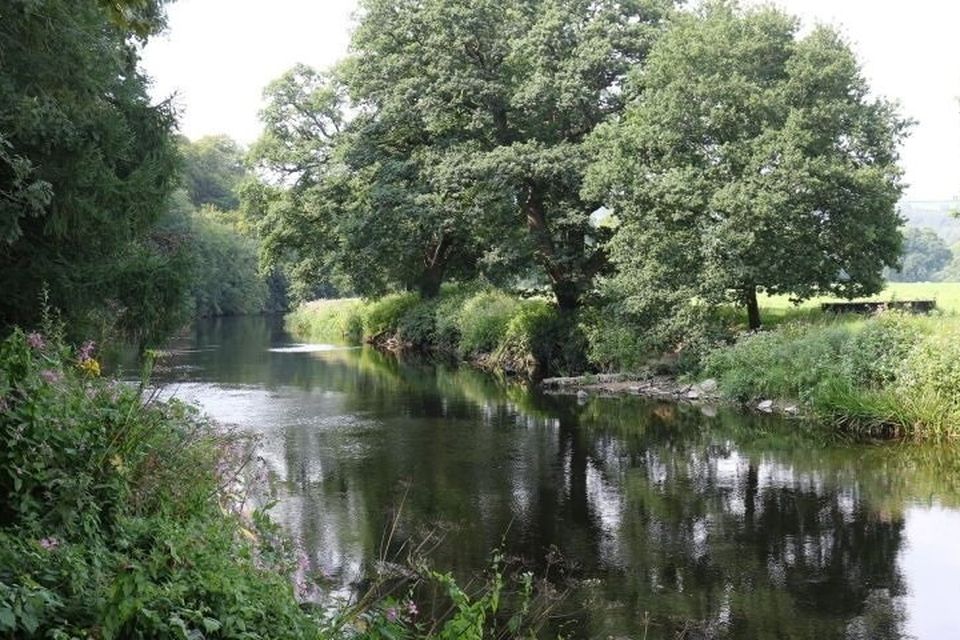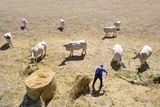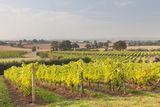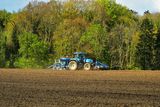Darragh McCullough: Farmers are paying the price for our leaders’ failure to heed warnings on climate change
Tirlán’s plan to address water quality on the Slaney is too little, too late
Tirlán's ‘Farming for Water: River Slaney Project’ is designed to enhance water quality across the Slaney catchment area in counties Wexford, Carlow, and Wicklow.
Tirlán’s announcement about a major environmental initiative to address water quality on the Slaney is great news. It’s just a pity that it’s about four years too late.
Farmers have never been more conscious about water quality and the impact their activity has on it. But the realisation that they need to be proactive about protecting water quality only really hit home when the change in the Nitrates Derogation in January was imposed on the sector.
It was the first time that dairy farmers were forced to reduce their intensification to comply with aims to improve water quality.
The problem is that the last nine months have been one of the wettest on record. It doesn’t bear thinking about, but that is likely to have a very negative impact on water quality.
Despite farmers’ heightened awareness and best efforts, high water tables and run-off will ensure that the pollution risks this spring and last autumn were higher than ever.
Harvesting spuds in water-logged fields, tilling land before spills of rain, poaching gaps and drinker areas, squeezing out loads of slurry just to buy a bit of space in the tank… these are just some of the countless ways that water pollution increases when the weather doesn’t play ball.
While farmers will rightly claim force majeure, the policy makers may have no choice but to tighten the screw on regulations even further.
If they don’t, what’s to stop farmers leaning on this weather crutch as a force majeure with increasing regularity? After all, isn’t more weather like we’ve experienced this spring exactly what the climatologists have been predicting all along?
Are our law-makers going to sit on their hands and continue watching Irish water quality slide backwards, while forking out ever-increasing fines to the EU for breaches of environmental targets? All to protect the 1.5pc of the population who rely on farming for their income?
I don’t think so!
The risk of the derogation being reduced even further — or removed altogether — looms large over the farming sector.
Sadly, weather patterns may have shifted to the extent that farmers will now be powerless to effect any real improvement at this late stage.
And it is late, because the farming sector has been warned for decades about its impact on waterways.
Farm leaders pooh-poohed the warnings as red herrings and hysterical rantings of ‘the Greens’. They pointed at all the other issues: the urban waste discharges, and the Mickey Mouse septic tanks up and down the country.
They dismissed calendar dates to restrict spreading as a farcical theory that bore no relation to the real world. Depressingly, I still see some bleating on about the inconveniences of calendar farming.
Farm representatives fought for the absolute minimum requirements in terms of slurry storage and traceability of movements. It makes me wince when I still hear them pushing back on the strengthening of these measures.
And that’s why we’re here folks. This is what an absence of real leadership over years and years ends up looking like.
Co-ops are supposed to be run by leaders. These are people that are very capable, often on sizeable six-figure salaries. They are being paid to manage assets on behalf of farmers. That involves looking to the future, anticipating change and putting resources in place. On time.
Every co-op should have launched a catchment initiative for every area that they collect milk from five years ago.
Instead, they made a token contribution to the Agricultural Sustainability Support and Advisory Programme (ASSAP), which most have little or no idea of, because it was limited to certain areas and certain farmers.
This is despite the fact that co-ops are perfectly placed to effect blanket change across the industries that have the biggest impact.
There is no dairy or tillage farmer in the country who doesn’t interact with a co-op. Not only does the co-op effectively determine the bottom line earned on most of these farms, it can side-step the nonsense politics that often plagues other farm organisations.
So why has it taken co-op leaders until now to see the way the wind was blowing on the environment in general, and water in particular?
I don’t know, but it’s a day late, and a dollar short.
Darragh McCullough runs a mixed farm enterprise in Meath, Elmgroveflowerfarm.ie















